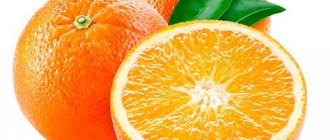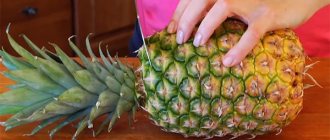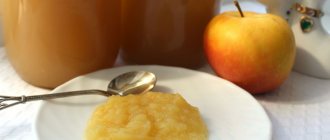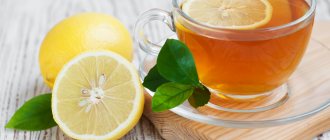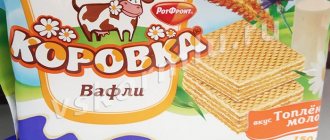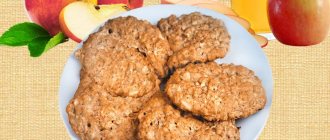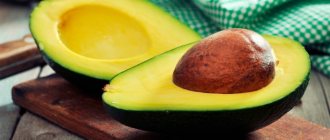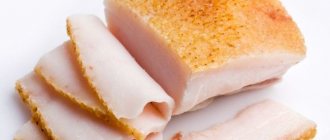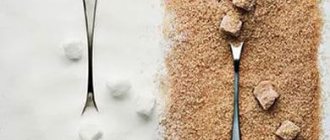Any mother who feeds her baby with breast milk asks questions: “Will this or that food harm the baby? Is it possible to eat a foreign fruit or vegetable?
Today's disclosure of the problem is persimmon during breastfeeding.
A very tasty and somewhat exotic fruit for Russians is also known as “food of the gods” or “divine fire” (due to its bright orange color).
The “fruit of the sun” symbolizes joy, victory, wisdom and strength in many countries around the world. But if most people still consider persimmon to be a fruit, then they are mistaken, because the bright fruit is a berry. And quite useful.
The pleasant and somewhat astringent taste of the sweet and tart berry does not leave indifferent people who value healthy and wholesome food. This delicious dessert is one of the favorite delicacies of many gourmets after a hearty lunch or a quick and light snack.
Composition and beneficial properties of persimmon
The content of tannins, vitamins, and microelements makes the fruit extremely beneficial for the body of a nursing mother. Vitamin A, C, PP, the presence of calcium, magnesium, pectin, potassium allow the baby to get a lot of benefits. The high percentage of sugar in the composition makes the fruit dangerous for patients with diabetes. A mild diuretic effect contributes to the disappearance of edema.
Eating persimmon helps reduce body weight. The product helps strengthen the immune system, remove toxins, cleanse the liver, kidneys, cell regeneration, has a beneficial effect on the skin, nails, reduces hair loss, and stimulates the digestive system. Persimmon has a beneficial effect on the thyroid gland, strengthens the skeletal system, prevents the development of rickets, strengthens muscles, has a beneficial effect on the cardiovascular system, improves vision, and prevents cancer, cystitis, and mastitis. Juice and water are used to treat the throat for viral diseases. The product is a wonderful cosmetic product: a mask made from fruit tightens pores, fights acne, and removes oily shine.
The product is an allergen and should be used with caution. During the first months of a baby’s life, it is advisable not to introduce fruit into the diet. It can cause constipation. Large amounts of sugar can cause a negative reaction in your baby.
Glucose and fructose included in the composition will be an excellent source of energy, which a young mother so lacks. Glucose has a beneficial effect on brain function and improves memory. Fruits help strengthen the nervous system, which can be unstable in mothers during the postpartum period. Strong nerves are a prerequisite for full lactation.
Despite the obvious benefits, the fruit has certain contraindications, most of which can be avoided by taking precautions.
The benefits of persimmon for nursing mothers and children
- Iron is a microelement that persimmons are rich in. During pregnancy and after childbirth, most young mothers do not have enough iron in their bodies. This microelement will improve the condition of hair, skin, nails, and will have a beneficial effect on liver function.
- Calcium and phosphorus are the best helpers for muscle function and bone strength. These microelements contained in persimmons will pass through breast milk to the baby and contribute to the good development of bones and muscles, and will help prevent the development of rickets.
- Potassium and magnesium are indispensable helpers for heart function and strengthening blood vessels. When magnesium and potassium enter the mother's body from persimmon, they will prevent blood clots and seizures.
- Iodine – this microelement contained in persimmons is the best friend for the thyroid gland. It normalizes her work, which affects the general condition of the mother.
- Vitamins A, PP, E, C - will saturate the organisms of mother and baby with benefits. Persimmon, which has these and other vitamins, is an excellent substitute for sweets, because it does not contain preservatives or dyes.
- The fruit promotes the resorption of kidney stones and is a diuretic. It will also help you lose excess weight by activating your metabolism.
The danger of persimmons for a baby with breastfeeding
If the baby does not have an allergic reaction, persimmons can be eaten within the permissible limit. Beta-carotene can cause an allergic reaction. Acute skin reactions are possible.
We recommend reading: Bell peppers during breastfeeding
The presence of astringent components can cause constipation, diarrhea in a child, and vomiting. Mom should not drink persimmons with milk. Diarrhea can be caused by eating the fruit on an empty stomach.
The absence of negative signs in the baby allows the product to be used with caution. You need to eat a small portion of fruit. If signs of intolerance are detected, the fruit should be introduced into the diet much later. It is necessary to increase the dose of product consumption gradually. Give preference only to high-quality fruits. They must be ripe and free from defects. Avoid purchasing fruits before the season to avoid nitrates.
Most opinions associated with the risks of consuming the product are false, the result of incorrect choice of the fruit, its intake, or non-compliance with the dosage.
A large amount of tannins are found in unripe fruits. This fruit is distinguished by its density and green leaves. It must be frozen before use.
Moderate consumption of the fruit will avoid problems. Even the safest product causes unpleasant consequences if eaten without measure. The diet of a young mother should be balanced and varied.
Rules for use during breastfeeding
To get more benefits from eating fruits without harming your baby, you need to follow the recommendations:
- It is better to eat the pulp without the peel, which contains more tannins. This will reduce the risk of a strengthening effect to a minimum;
- The first days you need to eat no more than one piece, in the morning, to monitor the baby’s reaction during the day and decide whether persimmon can be consumed while breastfeeding;
- If the baby develops redness, rashes, or digestive disorders over the next 24 hours, the mother should exclude the fruit from the menu. After a month, you can try a small amount again;
- If the baby does not have allergies, you can increase the amount of consumption to 200 g per day (one medium fruit); it is better to eat persimmons a couple of times a week to avoid stress on the child’s body.
Persimmon during breastfeeding reduces the likelihood of vitamin deficiency. It is a source of microelements useful for a nursing mother and helps maintain the baby’s health. You should not eat persimmon while breastfeeding in the first months of a baby’s life. It is safer to eat it when the baby is 4 months old. But if a baby has allergic manifestations, it is necessary to exclude the fruit from the diet until the baby completely switches to a normal diet. It is better to choose other sources of vitamins while breastfeeding.
Rules for eating persimmon while breastfeeding
Persimmon pulp can become a source of valuable vitamins and microelements for mother and baby. It is necessary to consume persimmons taking precautions. During breastfeeding, persimmons should only be ripe. The likelihood of a negative reaction from the baby is reduced when using the product during pregnancy. Fruit should be introduced into the diet no earlier than the baby reaches three months of age.
The first time you need to eat a small piece of fruit. The baby’s reaction to the product is monitored for two days. In the absence of negative symptoms, it is permissible to consume three hundred grams of fruit per day. You should not eat persimmon on an empty stomach. To reduce hazardous substances, the product is frozen before use. The dried treat is quite safe, but has a high calorie content.
Is it possible to eat persimmon while breastfeeding and how to properly consume this fruit?
Not just any persimmon is suitable for nursing women. It is best to choose varieties with a minimum amount of tannin in the composition - they do not have a negative effect on the infant’s still fragile digestive system. So, nursing mothers can eat the following varieties of persimmon:
- Sharon: this variety is a symbiosis of persimmon and apple. It has almost no tannins and a minimum of sugars. Therefore, this variety is suitable even for women who were diagnosed with gestational diabetes during pregnancy;
- Kinglet: it is rich in pectins and not too rich in tannins, moreover, it has a pleasant aftertaste with a hint of chocolate;
- Chinese persimmon: Another variety that is low in tannins and sugars.
Regardless of the variety, you should choose only whole fruits without dents, cracks or signs of rotting. This exotic fruit should be stored exclusively in the refrigerator - it is perishable.
It is recommended to introduce persimmons into a mother’s diet during breastfeeding no earlier than 4 months. Ideally, this moment should coincide with the beginning of the first complementary foods.
When trying the product for the first time, limit yourself to a small slice of pulp (the skin should not be eaten!). If the child does not experience a negative reaction, you can gradually increase the amount, eventually bringing it to 200 g per day.
It is important to remember that despite the fact that you can eat persimmons while breastfeeding, there are certain restrictions on its use:
- You should not introduce fruit into your daily diet - three days a week will be enough;
- Do not eat persimmons in the same meal with protein foods - meat, fish, dairy products, eggs. The fact is that tannins, even in small quantities, impair the body’s absorption of protein;
- It is better to eat this fruit in the first half of the day, but not on an empty stomach. It makes a great post-breakfast snack or dessert. Moreover, the calorie content of persimmon, depending on the variety, ranges from 58 to 70 kcal per 100 g. Such a dessert will help get rid of postpartum fullness much faster than pastries or sweets;
- It is strictly not recommended to choose unripe fruits - even if you personally like the astringent astringency.
Can persimmons harm mother or baby while breastfeeding?
Unfortunately, it can. Firstly, this fruit is a fairly strong allergen. In terms of allergenicity, it is equated to citrus fruits. Therefore, if a woman is prone to such reactions, she should consume persimmon with the utmost caution. Moreover, even if before pregnancy and childbirth the product was perceived normally by the body, now the reaction may be completely different.
It is also worth administering persimmon with caution during breastfeeding if the baby has already had an allergic reaction to certain foods.
Secondly, tannins contained in fruits can cause constipation - both in the child and in the mother. On the other hand, persimmons are rich in fiber, which has a beneficial effect on the intestines and facilitates bowel movements. In order not to cause discomfort to yourself or your baby, your task is to choose fruits with a minimum content of tannins and a maximum of fiber. And these are fully ripened fruits with almost no astringency.
So, can a nursing mother eat persimmons? It is possible, but with reservations. It definitely shouldn't be abused. And if consumed in moderation, taking into account the above rules and restrictions, this wonderful fruit will only bring benefits to you and your child.
Which persimmon variety to choose?
The correct choice of product is of particular importance.
- The ox heart variety contains a sufficient amount of vitamins, microelements, and a minimal amount of tannins. Give preference to ripe fruits without dark spots indicating the development of rot.
- “Korolek” will be a good choice, having a beneficial effect on the functioning of the digestive system. The fruit has a chocolate hue.
- The “Chinese” variety is low in calories, which is important for controlling body weight.
- “Sharon”, which is the result of selection of apple and persimmon, is distinguished by its safety. The safety of apples for breastfeeding is widely known. This is the product you should start eating fruit with. You can eat apples from the first days of your child’s birth.
